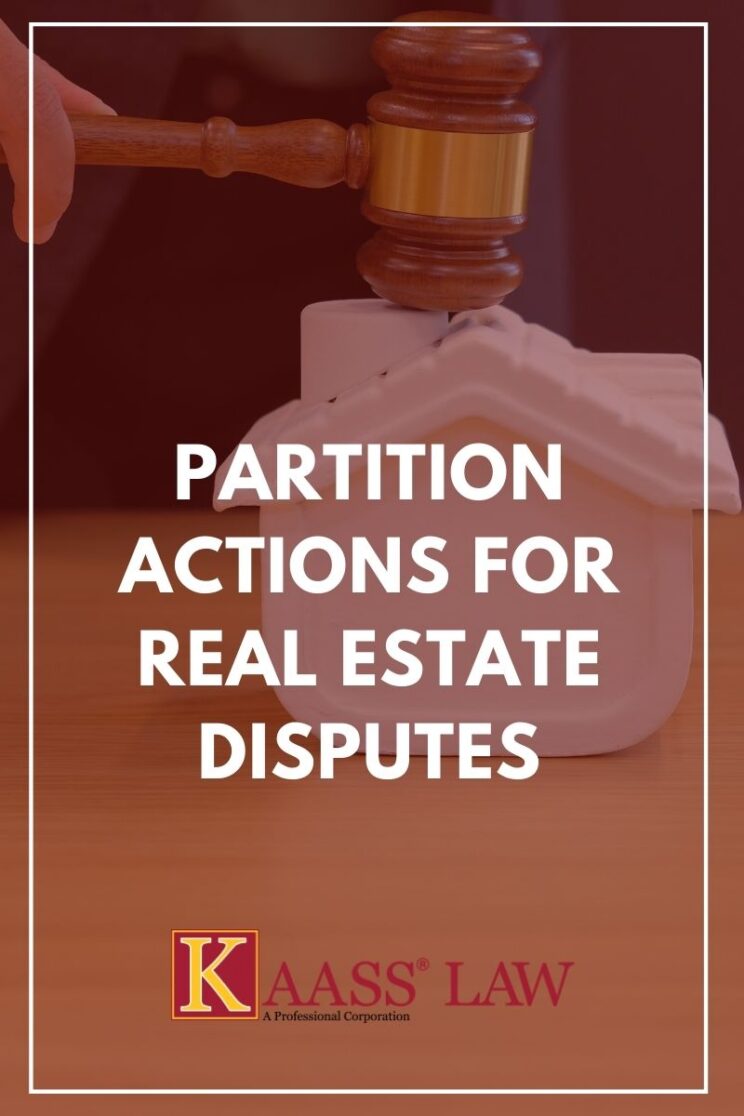Disputes can emerge when more than one individual owns a piece of property. When co-owners are unable or unwilling to decide what to do with their real estate, the process of buying out the owners or selling the property and distributing the proceeds can be extremely complicated. A partition action may be the best way to resolve a real estate dispute amongst co-owners.
Partition Actions
There are many reasons for partition actions to take place. They all originate from multiple owners claiming ownership of the same piece of real estate. For instance, let’s say two people co-own a property. One of them does not want to co-own the property anymore. This results in a partition action. There are two types of partition actions: partition in kind and partition by sale.
Partition in Kind
Physical borders divide the land amongst co-owners. This divides the property into smaller, personalized portions, each held by a single person, rather than one large piece co-owned by numerous persons.
In California, the courts may mandate a partition in kind as one option to resolve a partition case. This leaves each individual with an independent ownership share of the property.
When California courts mandate partition in kind, they must award each co-owner an “equitable portion” of the property. Each co-owner gets a fair division of land. For instance, if a court divides a 10-acre plot of land between two co-owners, the court will not automatically give each of the five acres. This problem develops when one part of the land is more valuable than the rest due to its closeness to a road, a beach, or other land feature.
Partition by Sale
When partitioning a property in-kind isn’t possible, the court may order a partition by sale. This entails selling the property and dividing the earnings among the owners. The proceeds must be split equally and fairly amongst owners, just as they must be divided in kind. The entire property is sold as one piece of land in a partition by sale. When a division in kind isn’t possible due to the structure of the real estate, a partition by sale proceeds.
The court must evaluate the form of tenancy for the land and whether any exceptional conditions exist that would result in one co-owner receiving a bigger share of the sale. A partition by sale has a real estate attorney handling all of the discussions and court appearances for you as a co-owner. In effect, this minimizes problems. Previously, California courts favored partition in kind over partition by sale. The courts would only impose partition by sale in exceptional circumstances. Partition by sale has been more widespread in recent decades. Co-owning real estate is common. To be precise, it is particularly in urban or developed areas. If one or more co-owners object to a disputed property being sold, the court may allow them to buy out the shares of the co-owner who filed the partition action. This averts a forced sale.
Find Your Real Estate Attorney Today!
Have you been involved in a real estate dispute? Do you co-own a property? A partition action may be applicable for you. Schedule a consultation to discuss your real estate matter. Contact KAASS Law Firm today at 310.943.1171.

